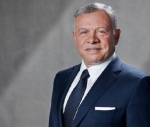You are here
Hard truths about Europe’s soft power
Jul 18,2014 - Last updated at Jul 18,2014
In the run-up to last December’s European Union defence summit, British General Nick Houghton warned that the United Kingdom’s armed forces risked being “hollowed out”.
Too little of Britain’s reduced defence budget was being spent on personnel, he noted, and too much on “exquisite” equipment bought for the wrong reasons.
“We must also be careful,” he cautioned, “that the defence budget is not disproportionately used to support the British defence industry”.
Houghton’s concerns are as relevant, if not more so, to Europe’s security. When it comes to using the defence budget to advance its industrial, employment, or regional policy goals, the UK is by no means the worst offender.
Europe’s leaders may have declared last December that “defence matters”, but evidently not as much as their economic concerns.
To assert one policy and practice another is unhealthy for democracy, as well as being economically inefficient.
But, more important, Europe’s lack of seriousness about defence presupposes the absence of any military threat, and suggests that the need to project power and influence internationally is somehow irrelevant, outdated, or even distasteful in the modern age.
Yet time and again we are astonished by invasions, whether in the Falkland Islands or Kuwait decades ago, or in Ukraine today, and we discover that the “foreseeable future” is as close as a few days.
Worse, the prevailing attitude towards defence overlooks the vital deterrent purpose of armed forces.
Threats are not like weather events; they are backed by human calculation (something we almost willfully obscure when we include pandemics and climate change in our definition of “security”).
And this calculation is crucially affected by perceptions of the other side’s willingness and ability to resist. In short, failing to take defence seriously risks turning threats into reality.
In this sense, the crisis in Ukraine should constitute a long-overdue wake-up call. But Europe’s leaders have not rushed to respond to America’s calls for increased defence spending.
They would rather confront Russia as they did in the 20th century — from under America’s protective wing.
But Europe’s attempts to avoid a global security role run even deeper than that.
For all of Putin’s opportunistic belligerence, Russia’s military is but a shadow of the Soviet Union’s — and no match for NATO.
In fact, Europe spends three times what Russia does on defence. Given this, focusing on the threat that Russia poses — especially from behind the shield of American power — is a far more attractive option than the liberal interventionism of the last two decades, with all of its costs, risks and uncertainties.
The messy interventions in Iraq and Afghanistan, together with the global financial crisis, have driven European countries to turn inwards, focusing on fixing their economies and safeguarding their borders, while letting the rest of the world sort itself out.
But for Europeans, abandoning any ambition to shape the wider world would be a major strategic mistake. After all, the real lesson of Ukraine — and, indeed, of Europe’s failure to take the opportunity afforded by the Arab Spring to influence events in the Middle East — is that Europe’s vaunted “soft power” is ultimately hollow.
Europe’s economic crisis has already reduced its ability to promote its interests and values around the world.
Witness the mercantilism of Europe’s national leaders and diplomats, jostling in Beijing and the Gulf for investment and export orders.
While the United States sees security concerns in Asia, Europeans see only an enormous market. Germany sells arms as though they were just expensive machine tools.
Yet even “realists” should reflect that ceding global leadership to hungrier new powers will not secure our children’s future.
Europe’s prosperity depends on its ability to demand free and fair trade, maintain access to raw materials, and insist on minimum environmental and social standards in business.
With much of the world drawn to China’s model of state capitalism, and even emerging democracies like Brazil and India evincing a neo-Westphalian focus on national sovereignty and non-interference, rather than embracing a rules-based international order, Europe must be able to assert its influence and values. And that requires military power.
Europeans may be “postmodern”, but the rest of the world is not. Across the Middle East, Africa, and Asia, national leaders are either military officers or preoccupied with military matters.
They want arms, training, advice, and intelligence, as well as reassurance that their partners understand military affairs and can demonstrate military capabilities. Europe’s leaders do not need to resort to gunboat diplomacy to resolve every political dispute, but they do need to understand how armed forces work as instruments of statecraft.
Europe needs a new strategy. Its leaders must reevaluate how the world is changing and develop new principles and doctrines to guide its foreign and defence policies.
And Europe must shed its illusions about the impact of soft power and the willingness of emerging powers to be house-trained as “responsible stakeholders” in a Western-designed international system.
To his credit, European Council President Herman Van Rompuy has opened up this vital debate. At the December summit, national leaders agreed to consider “the challenges and opportunities arising for the Union”.
The EU’s next high representative for foreign affairs and security policy should fully exploit this opportunity. Europe’s security, interests, and values depend on it.
The writer is a senior policy fellow at the European Council on Foreign Relations (ECFR) and was the first chief executive of the European Defence Agency. ©Project Syndicate, 2014. www.project-syndicate.org












